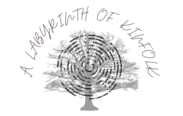How to Use Facebook as a Genealogy Tool.
My favourite hangout is Facebook, I use it to keep in touch with fellow researchers. It’s one of my first go to places for help, there is such a vast range of skills out there and we all need help sometimes.

I use Facebook for help on transcribing documents, everyone has come across the dreaded scribble called handwriting, on those hard to read documents. I must confess my handwriting isn’t much better, the scrawl I lay down on the page you would think I could decipher someone else’s bad writing. Luckily with the skills of the beautiful people on Facebook land, help is only a post away.
Facebook can be a great supplementary research tool with over 11,000 genealogy groups or pages on Facebook you are sure to find a few that fit your needs or research area.
Be sure to like pages of Libraries, Genealogical Societies, Museums and National Archives or join groups that are focused on places and topics you are researching. Search out the towns or countries where your ancestors lived, they may have historic photos on their site or historical information. Look for pages related to Military units your ancestors served with for additional information to add context to your research.
Here are some of the pages or groups I follow for general help.

I do also follow more specialised pages, for the areas of research I am interested in, for example Tasmania or Scottish ancestors.. Tasmanian page below: Tasmanian Family History & Genealogy Page
To see more of who I like to follow or groups I have joined on Facebook see my Resources page.
By joining these groups you are surrounded by like-minded people that all talk your language. You don’t have to bore your spouse or friends with talk of those ancestors who you have found, you can share your joy with fellow researchers who get it…Share your breakthroughs as well as your brick walls, share your photos’ where you are comfortable, you never know who may know someone in your photos too!
If nothing fits your needs, make your own facebook page or group, name it after an ancestral name or research area, then when other people are searching the same they may find you and join your group or like your page.

Facebook is also fantastic for having your own private group just for your family to share their stories and photos. A way for everyone to keep updated and feel connected with the research you uncover along the way, they can add to the story and only check-in when they feel like it, with no pressure, give them the opportunity to share in your genealogy adventures. This group is visible only to you and who you invite.
Facebook is also a great way to contact new relatives you have not yet met but have discovered through your research.
Some years ago I had contact with a distant “Davis” relative from another marriage, we were in contact via Facebook. She lived in New Zealand, where one of our common ancestors had been buried, she was able to send me photographs of his headstone, it was fabulous we stayed in contact via Facebook.
DNA Cousin matches also may be on Facebook, making Facebook a powerful tool to track down those cousins, search for family names Maiden and Married, this is a good way to reach out or find extended members of the family. You can also check their Friends list for family names.
If you want to reach out to a potential cousin, don’t send a friend request at first. Facebook members are so used to getting fake profiles and friend requests, these requests often get ignored. Instead, send a message to introduce yourself and explain why you’re trying to get in touch. The person will receive a “message request” from you, it may take a while for them to see your message and reply so don’t get disheartened.

Facebook is one of my ultimate networking tools. You can create, join or follow as many groups as you wish for different specialised family research. A valuable resource for Family Researchers and genealogists. Giving you new ways to get inspired, connect with others and document your research. Maybe your Facebook profile could one day be a valuable record for future genealogists.
If you want to follow me on Facebook, I am at A Labyrinth of Kinfolk


